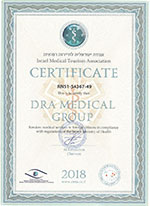Overview
Your liver is the largest organ inside your body and this makes sense considering the liver is responsible for over 5,000 different functions. Overall, these functions revolve around converting your food to energy, storing energy along with Vitamins D and E, and filtering harmful toxins, like alcohol and drugs, out of your blood stream.As a large organ with many functions, the liver is very vulnerable to a number of medical conditions and disorders collectively referred to as liver disease. Unfortunately, because it can be caused by chemicals, diabetes, drugs, obesity, viruses, or an immune attack, liver disease is quite common affecting almost one out of every 10 people.

Symptoms
Liver disease does not always produce obvious symptoms; therefore, it can be difficult to diagnose. In fact, scientists have identified over 100 different types of liver disease, so it understandable that each form of liver disease yields both unique symptoms and symptoms similar to other forms of liver disease.If you have early stage liver disease, sometimes called liver damage, you may experience flu-like symptoms. However, in later stages of liver disease you will generally suffer from dark urine with a brown coloration as well as yellowing of your skin and eyes also known as jaundice.
More specific signs include retaining fluid in the abdomen, vomiting blood, and passing black stools. Thanks to the highly regenerative ability of liver cells, if diagnosed early liver disease can be managed and possibly even reversed. But if liver disease progresses too far without treatment, it can develop into one of three potentially fatal conditions—liver cirrhosis, liver cancer, and liver failure.
Risk Factors and Common Forms
The five most common forms of liver disease are:- Alcoholic Liver Disease - results from long-term overindulgent alcohol consumption that consistently introduces toxins into your bloodstream at a rate faster than the liver can remove them.
- Autoimmune Liver Disease - like every other autoimmune disorder, occurs when the body’s immune system attacks the liver causing scarring and inflammation. Produced by metabolic syndrome, excess alcohol consumption, and fat accumulation in the liver.
- Fatty Liver Disease - plagues mostly diabetic or overweight patients.
- Genetic Liver Disease - Hereditary predispositions for iron or copper accumulation in the liver or abnormal protein production lead to Genetic Liver Disease.
- Viral Hepatitis - following an infection with Hepatitis A, B, or C, Viral Hepatitis inflames the liver causing liver disease.
Diagnosis
Doctors often conduct liver function tests (LFTs) to determine how well your liver is functioning. LFTs detect the presence and quantities of certain liver enzymes, metabolites, or products in the blood. Unexplained alterations in those quantities may signify liver disease.Nonetheless, the most reliable method for diagnosing liver disease is a liver biopsy. A biopsy is a simple procedure in which a surgeon inserts a syringe into the organ in question, extracts a small piece of tissue, and sends that sample to a lab to be analyzed. Scientists in the lab then study cells from the sample under a microscope and perform other tests on the tissue prior to generating a report summarizing their findings.
Treatment
Lifestyle changes, such as exercising regularly, avoiding alcohol, and eating healthy, are the ideal ways to treat or prevent liver disease. Likewise, anti-viral medications fight viral infections in an effort to halt, and hopefully reverse liver disease.In terms of liver cancer, if your condition exceeds the scope of surgery, your doctors may recommend a combination of chemotherapy and radiation therapy to destroy cancerous cells and give your liver an opportunity to recover. Finally, if your liver disease is too far advanced, a liver transplant may be your best and most viable option.











